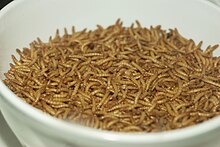earth_colors (![[personal profile]](https://www.dreamwidth.org/img/silk/identity/user.png) earth_colors) wrote2017-05-25 08:29 am
earth_colors) wrote2017-05-25 08:29 am
Entry tags:
KodoGuru S6 Ep6: Drama Notes
Ep 6: "Stir Fry Pork with Pickled Takana Mustard Greens and Beef Soup Soba of Takadanobaba, Shinjuku Ward, Tokyo"

Episode Synopsis. When Inogashira Goro (Matsushige Yutaka) got off at Takadanobaba Station, there was a sweet smell from somewhere. It was from a nearby melonpan specialty shop. Even though he was feeling hungry, he decided to go to his appointment first. He thought his meeting with karate instructor, Suzuki (Takahashi Tsutomu) will be over in a jiffy. However, Goro found himself waiting meekly as Suzuki finishes his intense training session with his students... After he left the dojo, it was already past 3 pm. Goro found himself in a predicament: he was starving but shops are closed at this time! Luckily, he spotted an open restaurant, specializing in Myanmar-Shan cuisine, "Nong Inlay". Inside, Goro was bug-eyed with surprise when he read the dishes listed in the "exotic zone" part of the menu. Nevertheless, there were other unknown dishes that caught his interest: fermented tea leaves salad, mouth-watering stir fry dishes, sticky rice dishes, delectable soup, etc. Plus adding various chili seasonings and condiments to his liking livened his food even more...
Drama Notes:
Featured Eatery:


NONG INLAY
[ノング インレイ]
Address: Tokyo, Shinjuku Ward, Takadanobaba 2-19-7
Tel. No: 03-5273-5774
How To Get There:
One minute walk from Takadanobaba Station (map)
More info/pix:

Takadanobaba [高田馬場]. A neighborhood in Shinjuku, Tokyo. As told in this episode, the name is literally spelled as "Takadababa" but somehow read as "Takadanobaba" or "Takatanobaba". The origin of the name came from "baba" which means "horse field" since the area was originally a horseback riding and horse-racing area. "Takada" comes from "Takata", a surname from the family of a daimyo who used to frequent the area as a sight-seeing spot. If you watched the SP "Orient Express" which I subbed, "Takadanobaba" was mentioned when one of the suspects, Countess Ando Namiko was questioned. Since she didn't want to reveal the governess' name (Baba-Sensei), she blurted out "Takada" instead, which made Detective Suguro confirm that she is covering up for her. Places of note: Waseda University and Sakae (commercial) Street (pic above)
(info: wiki)

Myanmar Cuisine. They have a variety of regional cooking, and are generally influenced by Chinese, Indian, and Thai cooking. In this episode, Shan cooking was featured. Shan cuisine usually make use of sticky rice, sticky rice noodles, fresh and pickled vegetables, pickled fish, fish paste, fish sauce, chilies, and other spices.
(info/pic: wiki, myanmartravelessentials)

Shan People. They are an ethnic group that live in the Shan State of Myanmar. They are traditionally wet-rice cultivators, shopkeepers, and artisans.
(info: wiki)

Edible Insects. Human consumption of insects has been around for 30,000 years, and is called "entomophagy". Today, it is most common in some Asian and Latin American countries, Africa and Oceania. Protein from these insects contain "a useful level of essential amino acids, comparable with protein from soybeans". They are eaten in egg form, larvae, pupae and adult form, and are mostly deep-fried, and/or milled as flour. Edible insects include: crickets, bamboo borers, wasps, cicadas, mealworms (pic above), and water bugs.
(info/pic: wiki)

Takana [高菜]. Mustard greens with scientific name: Brassica juncea var. integrifolia. It is often pickled to be used as onigiri filling or as a condiment. Here's a recipe for pickled takana: dailyfoodporn. And this one cooked stir fry with ground pork: nhk
(pic: kotobank)
What was actually said:
Dojo Terms. Goro mentioned several martial arts terms in this episode. Ippon [一本] is awarded for a technique which is judged as decisive, this is usually a move which connects cleanly, with good form and with little opportunity for the opponent to defend against it". Hensoku keri [変則蹴り] means irregular kick. Kaeshi waza [返し技] means counterattack or reversal technique.
(info: wiki)
Onna sannin yore bakashimashii [女三人寄れば姦しい]. "Wherever women gather, it is noisy". "Onna sannin" actually means "three women" literally. And if you look at [姦しい] which means "noise", the [姦] is made up of three [女] "women". Closest equivalent to a Western(?) saying is "Three women (and a goose) make a market."
(info: kotowaza)
Episode Index (link)
